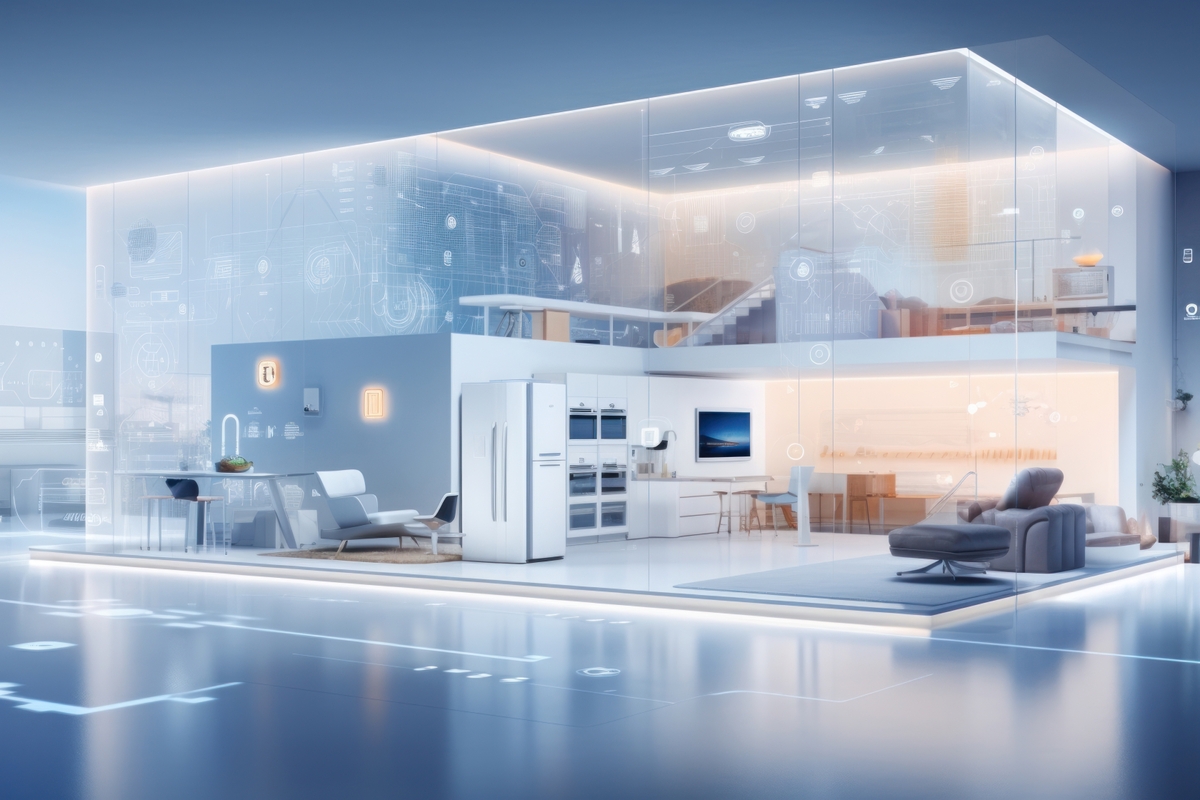The advent of automated homes has revolutionized modern living, offering unprecedented convenience and efficiency. However, with these advancements comes the critical issue of data privacy in automated homes. As more devices are interconnected, the risk of data breaches increases, raising concerns about the security of personal information.

Understanding Data Privacy in Smart Homes
Data privacy refers to the protection of personal information within the digital realm. In the context of smart homes, this involves safeguarding the data transmitted by various IoT devices, such as smart thermostats, security cameras, and voice-activated assistants. These devices collect vast amounts of data to function effectively, making it essential to ensure that this information is secure.
The Role of IoT in Automated Homes
The Internet of Things (IoT) is the backbone of automated homes, connecting devices and enabling seamless communication. However, this connectivity also makes IoT devices vulnerable to cyberattacks. Understanding the role of IoT is crucial for enhancing home automation security.
Potential Risks of Data Breaches
With the increasing reliance on smart technology, the potential risks of data breaches cannot be ignored. Unauthorized access to sensitive data can lead to identity theft, financial loss, and even physical threats. Therefore, it is imperative to implement robust security measures to protect against such risks.
Ensuring Data Security in Smart Homes
Secure Network Connections
One of the fundamental steps in ensuring data privacy is securing network connections. This involves using strong, unique passwords for Wi-Fi networks and regularly updating them. Additionally, enabling encryption protocols can further safeguard data transmission.
Regular Software Updates
Manufacturers frequently release software updates to patch vulnerabilities and enhance device security. Regularly updating smart devices is crucial to protect against potential threats and maintain data privacy in automated homes.
Implementing Multi-Factor Authentication
Multi-factor authentication (MFA) adds an extra layer of security by requiring users to verify their identity through multiple methods. Implementing MFA for smart devices can significantly reduce the risk of unauthorized access.
Balancing Convenience and Privacy
While the convenience of automated homes is undeniable, it is essential to strike a balance between convenience and privacy. By being aware of potential risks and taking proactive measures, homeowners can enjoy the benefits of smart technology without compromising their personal information.
Educating Homeowners
Education plays a vital role in enhancing data privacy in smart homes. Homeowners should be informed about the risks associated with smart technology and the steps they can take to protect their data.
Choosing Trusted Brands
When investing in smart devices, it is crucial to choose trusted brands known for their commitment to security. Researching and selecting devices with robust security features can significantly reduce the risk of data breaches.
Future of Data Privacy in Automated Homes
As technology continues to evolve, the future of data privacy in automated homes will depend on advancements in security measures and user awareness. By staying informed and proactive, homeowners can navigate the challenges of the digital age while enjoying the benefits of smart living.
Innovations in Security Technology
Continuous innovations in security technology are paving the way for enhanced data privacy in automated homes. From advanced encryption methods to AI-driven security systems, the future holds promising solutions for safeguarding personal information.
Legislation and Regulations
Government regulations and industry standards play a vital role in ensuring data privacy. Compliance with these regulations is essential for manufacturers and users alike to protect personal information.
Conclusion
The journey towards achieving optimal data privacy in automated homes is ongoing. By understanding the potential risks, implementing security measures, and staying informed about technological advancements, homeowners can confidently embrace the future of smart living.

FAQs
What is data privacy in automated homes?
Data privacy in automated homes refers to the protection of personal information collected and transmitted by smart devices within a home.
How can I enhance data security in my smart home?
Enhancing data security involves securing network connections, regularly updating software, and implementing multi-factor authentication for devices.
Are smart home devices prone to hacking?
While smart home devices can be vulnerable to hacking, implementing robust security measures can significantly reduce the risk of unauthorized access.






